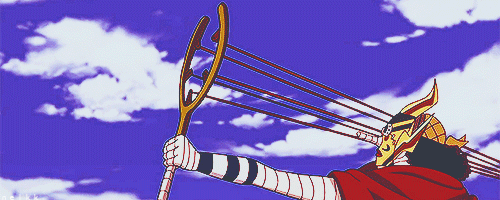@thegab:
I wouldn't want to completely get rid of consumables though. Having to plan and grind for an item to increase chances or just being SOL and not have anything besides flasks add an aspect of unpredictability that I love to hate.
That's all well and good if you run out of something in the middle of the fight and have to deal with it on a given run. I took on the back half of Nameless King with a sliver of health and no more estus, and it was a rush. It's different when you're in the middle of a tense encounter, run out of items, and are then expected to spend several hours grinding to have a chance to start the fight again on the same level that you started it before.
Boss encounters are the culmination of both the narrative and gameplay for a given section of a game. It sorta kills the mood when you need to call time our for a few hours to pick up bottles.
Sekiro: I never felt stupidly powerful even endgame which was a contrast from Dark Souls. No shame in spamming block until you get the timing down better. It was definitely a game I progressed through inch by inch. It helps to look up "how to cheese" videos for any section/boss of the game. No shame!
I have yet to beat the ending with that 4 staged boss. My 2 playthroughs I'm just too burnt out to die a hundred times on him until I somehow beat him. 2nd playthrough I did cruise through pretty easily, so maybe ill beat him next time.
Learning the cheese tactics and spamming block all the time doesn't sound fun for me. Ideally I would have loved to engage with the game on its own terms, but unfortunately it didn't seem to want me to.
@Foolio:
I just love Sekiro for doing away with all the equipment and "builds" crap and letting me control my play style through which tools I decided to use and which skills I prioritized. Bloodborne got partway there but still had annoying armor juggling and level up stat prioritization. Here I am directly rewarded for beating bosses, exploring, and doing side content. And for me, the rewarding play style was for the most part to ignore everything and focus on parrying and attack patterns. I never cheesed a boss and my victories felt amazing. Well I guess I abused Ichimonji Double at every chance but that's hardly a cheese. Compare that to something like Nioh which I immediately dropped when I realized it was just an equipment management simulator.
In Dark Souls/Bloodborne, I honestly just ignored armor/weapon experimentation and just zoned in on one thing throughout the game. Claymore only melee light rolls in Dark Souls 1/3, Hunter's Axe 2hand only in Bloodborne. That didn't bother me so much as paralyze me with options a bit and make me uninterested in trying new things. Those systems do have a lot of redundant parts that are good to strip out, and I do appreciate that Bloodborne and Sekiro cut out the fat, but Sekiro threw away my favorite cuts of meat, too.
Sekiro focused on the parry-based gameplay, which is something I'm not interested in, nor good at. I can't fault that style of gameplay for existing, but I just personally find it tedious and boring. I prefer approaching enemies with a loose, improvisational style, which is something that the Dark Souls games mostly reward, but Sekiro demands way more specific actions at specific times so it really frustrates me. I have a lot of other issues with the gameplay in Sekrio, but that fundamental issue with the playstyle is what makes all those issues land so much worse.
Souldborne combat isn't perfect, and I have plenty of issues with it, too (especially in Dark Souls 1), but it's a lot more fun and approachable to me. I love that I can tackle encounters in any way I want and try out any dumb idea I have. I hardly ever felt like I cheesed a fight, too (besides some of the bigger enemies that can be safely hit from behind), and found most of them pretty challenging. People say Bloodborne is more fun if you parry, but I felt the exact opposite and really enjoyed trading blows with its creatures. Parries definitely aren't for me.
@Nolus:
Interesting video, although I have to disagree on some of his points on Dishonored. I actually enjoy going stealth in that game more than killing and jumping around, and I do think the game shines in these circumstances as well.
The first two Thief games (The Dark Project and The Metal Age) actually had a pretty easy and effective way to discourage hoarding. Every mission begins with you being given a set of resources that you can chose to add to by buying more from the shop. Aside from the very first missions, the amount of gold you can spend depends on how much loot you got in the previous mission. You can't, however buy everything from the shop, even if you found every little piece of loot. The resources you get or buy for each mission is only for that mission (except for, of course, your equipment, like blackjack, lockpicks and mission/story items), so there's no point in not using them. You can even skip buying more stuff and finish the game with minimal consumables, well, consumed, but it's not going to be easy.
This solution doesn't work for every game though, because you need a level/mission system for that. Something that the Fromsoft games don't really have.
That system in the Thief games does sound really cool. I love things like that, that both force you to consider which items you'll use and encourage you to play with what you've got. That's why I do like the idea of making items into some basic cantrips for From games, since you'd have to prepare your slots, but then you'd have them available for a given section/encounter.
One thing that isn't stated in the vid, but is helpful for a lot of limited resource games is how death interacts with your inventory. In RE4, you have a limited amount of resources, but when you die you go back to the last checkpoint with whatever you started with. You can get into difficult low resource situations, but they aren't going to get worse every time you attempt a section. In From games, you get to keep items you pick up before you die, but you lose everything you lose, too. It really encourages grinding for too many items or using none, instead of making do with a limited amount. It's hard to just do what other games do and reset your items in From games, since they like to build in-universe narratives around their respawn mechanics (though they bend it a lot in Sekiro since there's no narrative reason for you to lose half your money, no way to recover it and no basis for what skill points are supposed to be). If they just dropped the pretense, I think they could easily improve that gameplay.






